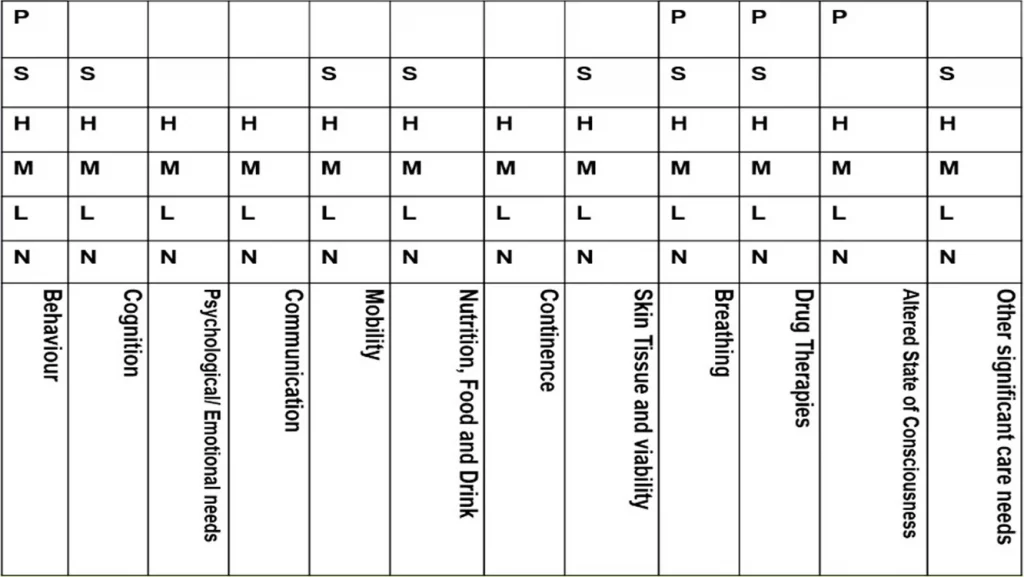Continuing Healthcare

NHS Continuing Healthcare (CHC) is a package of care arranged and funded solely by the NHS in England for a person who is aged 18 or over and has been found to have a ‘primary health need’ that has arisen because of disability, accident or illness.
Continuing Healthcare can be paid in any setting, regardless of where the care is to be provided and includes: care at home, residential or nursing homes.
Find our NHS Funding guide in the library
Who Administers CHC?
Integrated Care Boards organise the delivery of NHS services in England. The Integrated Care Board that holds the contract with the GP practice responsible for care at the time of application is responsible for deciding eligibility to Continuing Healthcare.
If you are eligible for CHC a personal health budget can allow you to manage your healthcare and support such as treatments, equipment and personal care, in a way that suits you.
The CHC Checklist
The National Screening Continuing Healthcare Checklist is used as an initial screen and aims to help trained health/social care professionals identify people who should have a full assessment to determine their eligibility.
Care Domains
The checklist is based on 11 of the 12 care domains (areas of care need) used in the decision support tool. The domain ‘other significant needs’ is not used. The care domains broken down into three levels: A, B or C (where A represents a high level of care need, and C is a low level of care need)
A full assessment for NHS Continuing Healthcare is required if there are:
Two or more domains selected in column A, five or more in B or one in A and four in B; or one in of these domains - Behaviour, Breathing, Drug Therapies or Altered State of Consciousness.
Key Indicators - The primary health need should be assessed by looking at all of the care needs and relating them to twelve care domains AND four key indicators; nature, intensity, complexity and unpredictability.

Decision Support Tool (DST)
Following a positive checklist, a full assessment should be carried out by a Multi-Disciplinary Team (MDT) and the Decision Support Tool (DST) used to make a recommendation for eligibility to CHC.
The Decision Support Tool is not an assessment in itself but a way of bringing together and applying evidence in a single practical format to provide an overview of the levels chosen and a summary of the person’s needs.
The Fast Track Tool
The Fast Track pathway tool is used when a person has a rapidly deteriorating condition and may be entering a terminal phase. It can only be completed by an ‘appropriate clinician’ and is sufficient evidence to establish eligibility. Where it is appropriate to use the Fast Track Pathway Tool, this replaces the need for a Checklist and DST to be completed
Challenging A Decision
If you have received a ‘negative’ checklist outcome person you may ask the CCG to reconsider its decision and agree to a full assessment of eligibility.
Challenging An Assessment Decision
If you do not agree with the decision made following recommendations made by a Multi-Disciplinary Meeting using the Decision Support Tool (or by use of the Fast Track Pathway Tool), challenging that decision should be addressed through the local resolution procedure, initially.
Funded Nursing Care Payment
NHS continuing healthcare must be considered, and a decision made prior to any consideration of eligibility for NHS-funded nursing care. The Funded Nursing Care Payment is a weekly payment of £235.88 (April 2024/25) and is provided by the NHS to homes providing nursing care, to support the provision of nursing care by a registered nurse.
Section 117
Some people who have been kept in Hospital under the Mental Health Act 1983 are entitled to FREE AFTERCARE under Section 117 of the Mental Health Act 1983. This care and support provided by both Health and Social Care is to try and prevent mental health issues getting worse and avoid the need to go back into hospital.
If you would like to help to understand whether you may be eligible for Continuing Healthcare please get in touch.
FAQ
What if I don’t agree with a Continuing Healthcare decision?
If you don't agree with a Continuing Healthcare decision the first action would be to ask the Clinical Commissioning Group to look at it again. Get as much evidence as possible and some advice when considering challenging a decision. If you would like some help please get in touch
Why is Continuing Healthcare so hard to get?
In addition to the 12 Care Domains there are 4 key indicators; complexity, intensity, unpredictability and the nature of the need that are considered for Continuing Healthcare. Continuing Healthcare eligibility is based on a 'primary' health need not social care needs but if eligible all of the care and support must be funded, including any accommodation requirements. The Hospital Discharge process does not allow for assessments to be done in Hospital and this can mean that a Continuing Healthcare assessment is overlooked or not completed. If you would like Care Funding and Benefits advice please get in touch.
Who is eligible for CHC?
Continuing Healthcare funding is intended to meet health and associated social care needs that have arisen as a result of disability, accident or illness. It is a two step process (unless a fast track is appropriate) and begins with an initial 'Checklist' which should identify people who need to be assessed in full. These are no longer done in a Hospital setting and it can be difficult to know whether CHC has been considered. If you would like some help too understand or an independent Continuing Healthcare checklist please get in touch



